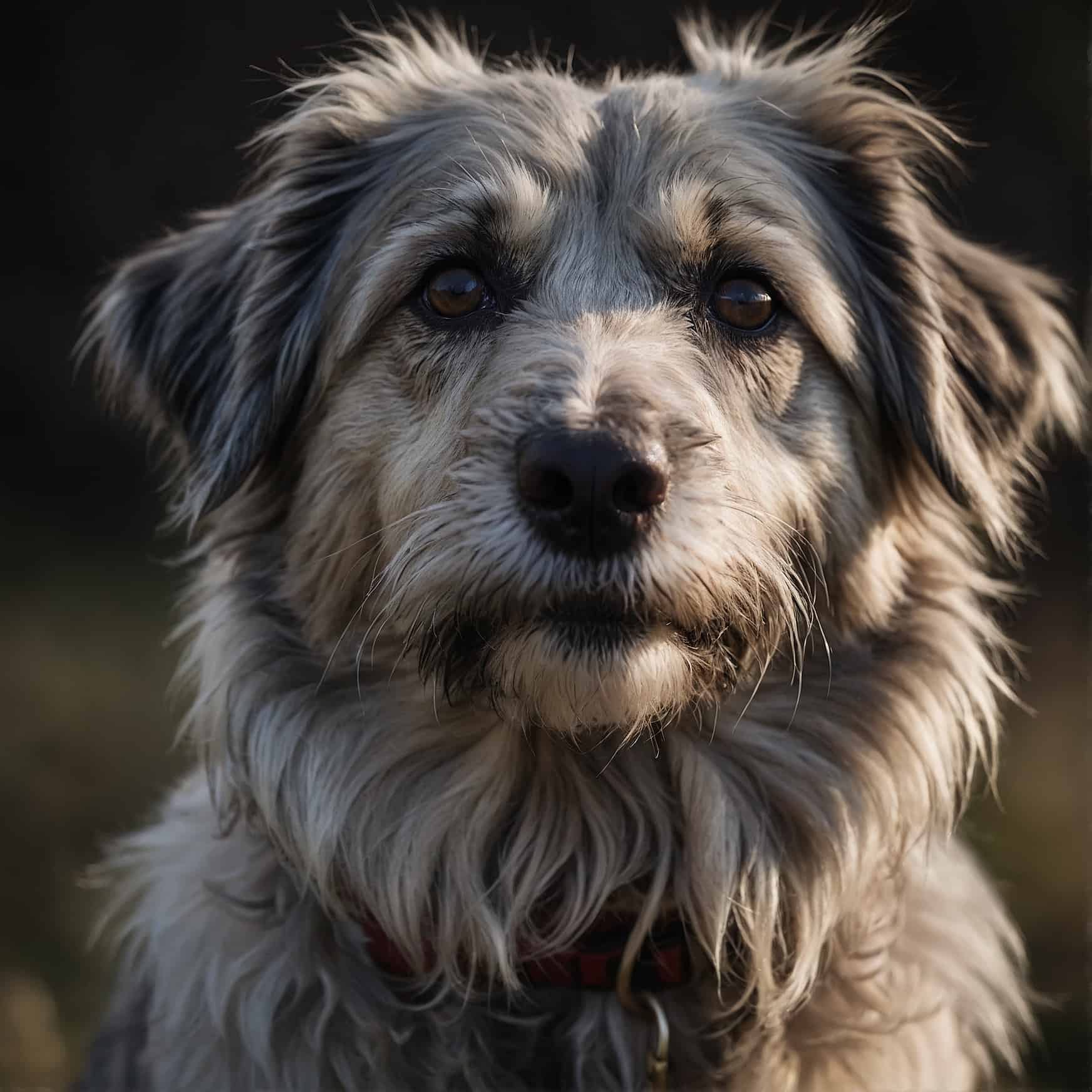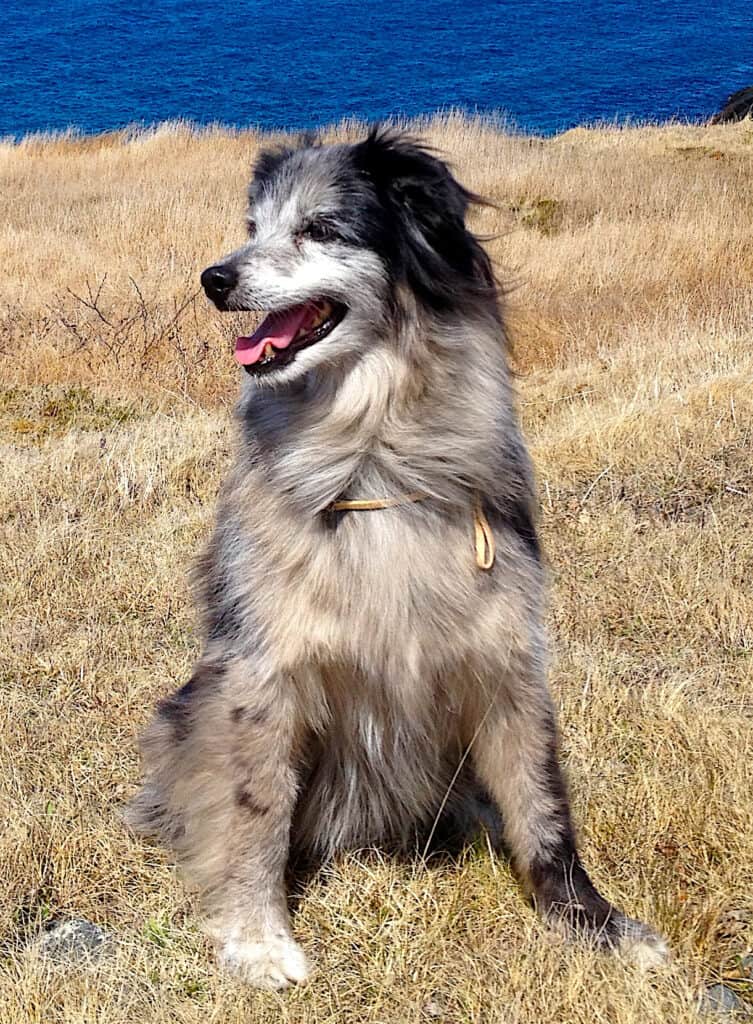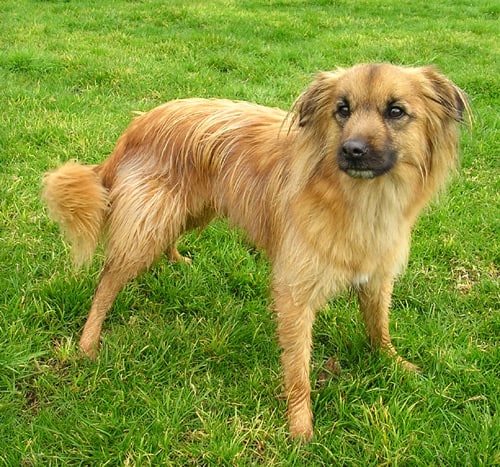The Pyrenean Shepherd, a symbol of determination, unwavering dedication, and remarkable herding skills, has made its mark among dog lovers and shepherds. With a history linked to the Pyrenees region, distinctive physical attributes, and a unique set of temperament traits, this breed is revered as an agile and dependable working dog.

| Category (Explanation) | Breed Information |
|---|---|
| Year of Breed Conception | 17th century |
| Country of Origin | France (Pyrenees region) |
| Weight (lbs & kg) (Male) | 15-30 lbs (7-14 kg) |
| Weight (lbs & kg) (Female) | 15-25 lbs (7-11 kg) |
| Coat Type | Long or rough |
| Color Variations | Various colors, often fawn or brindle |
| Shedding Level (Low, Moderate, High) | Low to moderate |
| Height (cm & in) | 15-20 inches (38-51 cm) |
| Breed Size | Small to medium |
| Trainability (Low, Moderate, High) | High |
| Mental Needs (Low, Moderate, High) | High |
| Intelligence Level (Low, Moderate, High) | High |
| Energy Level (Low, Moderate, High) | High |
| Agility (Low, Moderate, High) | High |
| Loyalty (Low, Moderate, High) | High |
| Playfulness (Low, Moderate, High) | Moderate |
| Exercise Needs | Regular exercise and mental stimulation |
| Guarding Proficiency (Low, Moderate, High) | Moderate |
| Sociability with Children (Low, Moderate, High) | High |
| Barking Level (Low, Moderate, High) | Moderate |
| Digging Tendency (Low, Moderate, High) | Low |
| Destructive Behavior (Low, Moderate, High) | Low |
| Drooling Level (Low, Moderate, High) | Low |
| Obedience Level (Low, Moderate, High) | High |
| Apartment Friendly (Yes/No) | Can adapt to apartment living with sufficient exercise |
| Inherent Prey Drive | High |
| Physical Risk to Others (Low, Moderate, High) | Low |
| Travel Fatality Risk (Low, Moderate, High) | Low |
| Allergen Potential | Low |
| Health Concerns (List of Common Health Concerns) | Hip Dysplasia, Eye Issues, Epilepsy |
| Average Life Expectancy (Life Expectancy in Years) | 15-17 years |
Woof Mastery is reader supported and our articles may contain affiliate links.
Instead of running third party ads that we have no control of we only use links from high-quality companies we are directly partnered with. Making use of these links come at no cost to you our reader, and in many cases have the extra benefit of discounted rates or sign up bonuses.
If you’re interested you can read more about our affiliate policy here.
We appreciate your support and always insure that the products and services we recommend are high-quality, helpful and relevant to the subject at hand!
The Pyrenean Shepherd, or Berger des Pyrénées, has a history rooted in the Pyrenees Mountains of France. These dogs have served as herders and working companions for shepherds in the region for centuries.
Their agile and compact build, along with their intelligence, made them well-suited for herding tasks in the rugged terrain of the Pyrenees. They were also known for their unwavering loyalty and ability to work closely with humans.
Pyrenean Shepherds continue to be appreciated for their herding abilities and their bond with their human families, making them both versatile working dogs and affectionate pets.

The Pyrenean Shepherd is special for its remarkable endurance and adaptability. These agile herders excel in challenging mountain terrains. Their loyalty and work ethic set them apart, making them truly extraordinary working and companion dogs.
Pyrenean Shepherds have a rich history as herding dogs in the Pyrenees Mountains. Their agility and ability to manage livestock in challenging mountain terrain made them invaluable to shepherds. They also served as guards and protectors of flocks. Today, they maintain their herding and working instincts, participating in dog sports, and are beloved as loyal family pets, carrying on their tradition as capable working dogs.
Pyrenean Shepherds have spirited and tenacious personalities. They are known for their endurance, adaptability, and a strong work ethic. These agile herders excel in managing livestock in challenging mountain terrains.
Their loyalty and determination set them apart as dependable workers, and they also form strong bonds with their families. Pyrenean Shepherds are characterized by their agility, work ethic, and a devoted nature, epitomizing the perfect blend of resilience and companionship.
Pyrenean Shepherds are affectionate, alert, and agile. They have strong herding instincts and are usually good with children and other pets. They can be reserved with strangers.
Early socialization helps them become well-adjusted. They thrive on mental and physical stimulation.
Pyrenean Shepherds are small to medium-sized dogs with a sturdy and agile build. They have a pleasing head with expressive almond-shaped eyes and small, triangular ears.
They have a double coat in shades of fawn, brindle, or gray with white markings. Their tail is often carried high and may be naturally bobbed or long.
Males typically stand between 15 to 21 inches (38-53 cm) at the shoulder and weigh between 30 to 50 pounds (14-23 kg), while females are slightly smaller and lighter.
Pyrenean Shepherds have an agile and alert presence, reflecting their herding and working abilities.
Pyrenean Shepherds typically have fawn, brindle, or various shades of gray coats with white markings. They may not have distinct coat colors.
Pyrenean Shepherds typically have fawn, brindle, or shades of gray coats with white markings, but they may not exhibit distinct coat patterns.
Pyrenean Shepherds have a moderate shedding level. They shed year-round with seasonal variations. Regular grooming and brushing can help minimize shedding and keep their coat healthy.
Pyrenean Shepherds have a medium-length coat that requires regular grooming to keep it healthy and minimize shedding. Grooming habits for this breed include:
1. Brushing: Regular brushing, about once or twice a week, helps prevent matting and removes loose fur. Use a slicker brush or a pin brush for grooming.
2. Bathing: Bathe Pyrenean Shepherds when necessary, using a dog-specific shampoo. Ensure thorough rinsing.
3. Ears: Check and clean their ears regularly to prevent wax buildup or infections using a veterinarian-recommended ear cleaning solution.
4. Nails: Trim their nails to a comfortable length to maintain proper gait and prevent discomfort.
5. Teeth: Brush their teeth regularly to ensure dental health and prevent bad breath. Dental chews or toys can be beneficial.
6. Tail and Paw Care: Maintain cleanliness in the tail and paw areas, inspecting for any signs of irritation or injury.
Pyrenean Shepherds have a high activity level and thrive on physical and mental challenges. Key points about their activity level include:
1. Exercise Needs: Pyrenean Shepherds require daily exercise to stay healthy and content. Activities should be engaging and include playtime and outdoor adventures.
2. Energy Level: They are known for their high energy levels, which need to be properly channeled through regular exercise.
3. Herding Heritage: Historically, Pyrenean Shepherds were bred for herding and protecting livestock. They excel in herding trials, agility, and obedience.
4. Mental Stimulation: In addition to physical activity, mental challenges through training and puzzle toys are important to keep them mentally sharp.
5. Outdoor Enthusiasts: They enjoy outdoor activities and make great companions for hikers and active individuals.
Briards are highly intelligent dogs with a remarkable capacity for learning. Here are some key points about their intelligence:
Briards’ high intelligence and work ethic make them excellent companions and working dogs. Training, socialization, and mental stimulation are crucial for their well-being.
Pyrenean Shepherds are intelligent and need mental stimulation. Engage them in obedience training, herding activities, and interactive games to keep their minds sharp.
Social Interaction: They are social dogs and require regular interaction with their human family. Loneliness can lead to anxiety or destructive behavior, so provide companionship and attention.
Exercise: Mental exercise is equally important. Offer them tasks that challenge their problem-solving skills.
Training and Obedience: Pyrenean Shepherds benefit from obedience training, herding activities, and mental challenges, which not only stimulate their minds but also strengthen their bond with their owners.
Enter The Woof Mastery

Before bringing a Pyrenean Shepherd into your home, consider the following:
1. Activity Level: Pyrenean Shepherds are active dogs that need regular exercise and mental stimulation.
2. Training Needs: They are intelligent and require training to keep their minds engaged and prevent boredom.
3. Space: Pyrenean Shepherds can adapt to smaller living spaces but need outdoor activities.
4. Coat Care: Regular grooming is important to maintain their coat and prevent matting.
5. Herding Instinct: Be prepared for their natural herding behaviors and tendencies.
Pyrenean Shepherds, though smaller in size, may pose a physical risk to others if not properly socialized, trained, or managed. The risk assessment factors include:
1. Protective Instinct: Pyrenean Shepherds may have a protective instinct, especially towards their family. Proper training is essential to manage this instinct.
2. Socialization: Early and thorough socialization is crucial to ensure Pyrenean Shepherds are comfortable around people and other animals. Poor socialization can lead to fear or aggression.
3. Training: Obedience training is essential to teach Pyrenean Shepherds appropriate behavior and ensure they respond to commands. Well-trained dogs are less likely to engage in aggressive behavior.
4. Owner Responsibility: Responsible ownership involves being aware of the dog’s behavior and taking necessary precautions in public settings.
5. Breed-Specific Legislation (BSL): Pyrenean Shepherds are not commonly subject to BSL, but owners should be aware of local regulations.
6. Individual Variability: Each dog is unique, and behavior can vary. Responsible ownership, proper training, and socialization are key to minimizing the potential physical risk to others.
Pyrenean Shepherds are usually good with kids. They are affectionate and protective. Their herding background may make them watch over and gather children. With proper socialization and training, they can be gentle and loving family companions.
Pyrenean Shepherds are generally capable swimmers. Their agility and sturdy build make them proficient in the water. Many may enjoy swimming, but it’s important to gauge your individual dog’s comfort level and abilities. Always supervise them when they are in or around water.
Early and positive training will help your Pyrenean Shepherd puppy become a well-behaved and devoted companion.
Pyrenean Shepherds are usually moderately noisy. They may bark while herding and alert their owners to potential dangers. However, their barking is generally not excessive compared to some other herding breeds.
Pyrenean Shepherds thrive in homes that provide:
Challenges:
When traveling with Pyrenean Shepherds, consider these factors:
Pyrenean Shepherds are generally healthy, but they may be prone to certain health concerns, including:
Proper nutrition is essential for Pyrenean Shepherds. Follow these nutritional habits:
Proper nutrition is essential for the health and well-being of Pyrenean Shepherds.
Breed-specific laws (BSL) may affect Pyrenean Shepherds in particular areas, and owners should be aware of these regulations. BSL is typically enacted at the local level, and the restrictions can vary from one jurisdiction to another. Here are some common types of BSL restrictions that Pyrenean Shepherds may encounter:
The rationale behind BSL is often based on concerns about public safety and perceived risks associated with specific breeds. While Pyrenean Shepherds are not inherently aggressive, they can be affected by BSL due to their physical resemblance to breeds sometimes included in these laws.
It’s important to note that BSL is a contentious topic, and many advocates argue that it unfairly targets breeds rather than addressing individual dog behavior. They emphasize that responsible ownership, training, and education should be emphasized instead of breed-specific restrictions.
To determine if there are breed-specific laws or restrictions regarding Pyrenean Shepherds in your area, you should check with your local animal control or government authorities. Be aware of and comply with any local regulations to ensure that you are in compliance with the law while owning a Pyrenean Shepherd.
Woof Mastery is reader supported and our articles may contain affiliate links.
Instead of running third party ads that we have no control of we only use links from high-quality companies we are directly partnered with. Making use of these links come at no cost to you our reader, and in many cases have the extra benefit of discounted rates or sign up bonuses.
If you’re interested you can read more about our affiliate policy here.
We appreciate your support and always insure that the products and services we recommend are high-quality, helpful and relevant to the subject at hand!
Myth 1: Pyrenean Shepherds are the Same as Border Collies
Truth: Pyrenean Shepherds are a distinct breed with their own traits. They originated in the Pyrenees region of France.
Myth 2: They are Not Good Family Dogs
Truth: Pyrenean Shepherds can be excellent family dogs when properly socialized. They are known for their loyalty and protectiveness.
Pyrenean Shepherds are not as widely recognized as some other breeds, but they have made significant contributions in herding and working roles:
While specific famous individuals may not be as well-documented, the breed’s overall dedication to herding and working roles is widely acknowledged.
Pyrenean Shepherds are renowned for their herding abilities, especially in the Pyrenees region. While specific historical owners may not be well-known, these dogs have played a vital role in traditional herding practices.
Pyrenean Shepherds, like all breeds, face certain challenges and dangers. Some of the greatest dangers and concerns for the breed include:
By understanding these challenges and providing responsible ownership and care, many of these dangers can be mitigated to ensure the well-being of Pyrenean Shepherds.
The Pyrenean Shepherd, known for herding in the Pyrenees region, is believed to have ancient origins. It developed over centuries from local herding and sheepdog breeds in the Pyrenees Mountains between France and Spain. Selective breeding aimed to enhance its herding instincts and working abilities.
The Pyrenean Shepherd, known for its herding skills and tenacity, is a breed that thrives in active roles. Their agile and intelligent nature makes them a valued working dog and companion.
Owning a Pyrenean Shepherd means providing mental and physical stimulation, grooming, and regular veterinary care. Responsible ownership includes nurturing their herding instincts and addressing potential health concerns.
With their fawn, brindle, and sable coats, Pyrenean Shepherds continue to leave a mark as dependable working partners and loving family members.